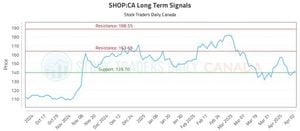Switzerland's Federal Council has expressed deep concerns regarding the recent decision by United States President Donald Trump to impose a staggering 31% tariff on Swiss imports, a move that could significantly impact the Swiss economy. On Thursday, April 3, 2025, the council articulated its apprehension, stating that ramping up trade tensions is not in Switzerland’s interest and that countermeasures could lead to increased costs, particularly making imports from the US more expensive.
The new tariffs, which will affect all Swiss goods exported to the US, are set to take effect in stages, with an initial 10% tariff starting on Saturday, April 5, followed by a further 21% increase on Wednesday, April 9. This unprecedented levy has raised eyebrows among Swiss economic and political leaders, many of whom were hopeful that Switzerland's longstanding commitment to liberal trade policies would safeguard it from such punitive measures.
Swiss Economy Minister Guy Parmelin, along with Finance Minister Karin Keller-Sutter, is scheduled to travel to the United States shortly to engage in discussions about the tariffs. During a press briefing, Parmelin emphasized the importance of direct dialogue, stating, "The measures that have just been taken are incomprehensible and totally counterproductive... for the global economy, the Swiss economy, of course, but also for the American economy." He added that while the impact of the tariffs remains challenging to assess, he does not expect Switzerland to slip into recession as a result.
The Federal Council has also indicated that it is not planning to impose any countermeasures against the US at this time. This decision comes amid fears that retaliatory actions could further escalate tensions and harm the Swiss economy. Keller-Sutter noted that Switzerland is coordinating its response with the European Union, maintaining close communication with EU chief Ursula von der Leyen.
According to the Federal Council, the tariffs will have a significant impact on key Swiss exports, particularly machinery, watches, and agricultural products such as coffee capsules, energy drinks, cheese, and chocolate. However, the pharmaceutical sector may see some relief, as no additional tariffs are currently planned for its exports.
Swissmem, an employers' association representing the mechanical and electrical engineering industries, has voiced concerns that the sector's exports to the US, which amounted to 10.1 billion Swiss francs (approximately $11.8 billion) last year, could face a "massive reduction" due to the tariffs. This would particularly affect small and medium-sized enterprises that lack local manufacturing facilities in the US.
Moreover, analysts have warned that Switzerland's luxury goods and watchmaking industries, renowned for their quality and craftsmanship, could be among the hardest hit by the new tariffs. With the US being Switzerland's second-largest trading partner after the EU, this sudden shift in trade policy has sent shockwaves through the Swiss business community.
In response to the tariffs, the Federal Council is also considering filing a complaint with the World Trade Organization (WTO) to challenge the legitimacy of the US's actions. Parmelin stated, "Our priority is to have the discussion directly at all levels in the United States," underscoring the importance of diplomatic engagement over confrontation.
Despite the challenges posed by the tariffs, the Swiss government insists that its bilateral trade balance with the US remains relatively balanced. The US enjoys a surplus in service exports, while Switzerland has a surplus in goods exports. This complex economic relationship highlights the interdependence of the two nations, with Swiss companies generating around 400,000 well-paid jobs in the US, making Switzerland the sixth-largest foreign investor in the country and a leader in research and development.
The Federal Council's statement reflects a broader concern that escalating trade tensions could undermine not only the Swiss economy but also the global economic landscape. As countries navigate the complexities of international trade, the repercussions of such tariffs may extend far beyond the immediate impacts on specific industries.
In conclusion, the Federal Council's response to the US tariffs underscores Switzerland's commitment to maintaining open dialogue and cooperation in international trade. While the challenges ahead are significant, the Swiss government remains focused on protecting its economic interests and fostering strong ties with its partners.





